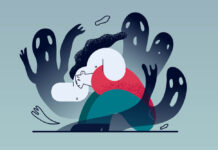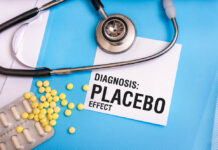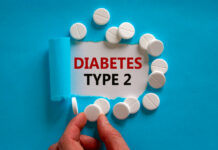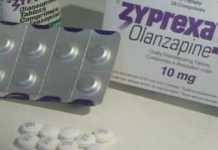No Subgroup of Patients for Whom Antidepressants Are Effective
A reanalysis of STAR*D finds no support for the theorized subgroup of patients who do well on antidepressants.
Researchers Criticize Putting Preschoolers on Stimulant Drugs
Against guideline recommendations, preschoolers were often prescribed stimulants without even having the chance to try family behavioral therapy.
Antidepressant Withdrawal Symptoms Linked to Life-Altering Consequences, New Study Shows
A new study reveals that withdrawal symptoms from antidepressants can last years, disrupting lives and relationships.
Exposure to Antidepressants in the Womb Makes for Sad, Scared Adolescents
SSRI exposure in utero “alters the offspring’s brain structure,” causing a hyperactive amygdala and fear circuits, leading to anxiety and depression.
Researchers: “We Do Not Suggest” Antipsychotics for Depression
Augmenting with antipsychotics was no better at reducing suicide than adding antidepressants, but led to increased risk of death from other causes.
Post-Acute Withdrawal Syndrome (PAWS): Why Don’t We Know More About It?
Persistent antidepressant withdrawal is a debilitating experience, but little research exists about its prevalence and treatment.
Antidepressant Trials Last Eight Weeks, So Why Do We Take Them for Years?
The studies are of short duration and are riddled with methodological issues like unblinding and failure to assess withdrawal.
Half of Those Who Take Antidepressants Are Labeled “Treatment Resistant”
Millions of people are trying multiple antidepressant drugs without success, and psychiatry labels them “treatment resistant.”
Antidepressants in Dementia Patients Increase Risk of Death and Fractures
A large-scale study reveals that antidepressant use is linked to faster cognitive decline in dementia patients, raising concerns about their widespread prescription.
Antidepressants No Better Than Placebo for About 85% of People
Researchers can’t predict the 15% who benefit from antidepressants, and the other 85% are unnecessarily exposed to the harms of the drugs.
Psychiatric Drugs “A Crude Form of Chemical Restraint”
Mental health nursing has a key role to play in helping people discontinue the drugs, writes Timothy Wand.
Antidepressant Withdrawal Is Common and Debilitating
Those using antidepressants long-term were more likely to experience withdrawal and to have severe withdrawal symptoms.
Elderly Patients Who Stop Antipsychotics Have Better Outcomes
Older adults are often prescribed antipsychotics off-label for behavioral control in the hospital. But there’s no evidence for antipsychotics helping, and a great deal of evidence of harm.
Animal Study: SSRI Neurotoxic in Pregnancy
Researchers: Fetal exposure to vilazodone hampers neurodevelopment and leads to "long-lasting neurodevelopmental impairments."
Open Dialogue Approach Reduces Future Need for Mental Health Services
The Open Dialogue psychiatric treatment approach is associated with reduced utilization of mental and general health services for Danish youth.
Lithium Doubles Risk of Thyroid and Kidney Dysfunction
Serum lithium levels lower than those considered therapeutic still conveyed increased risk.
More Evidence That Antidepressants Work Via Placebo Effect
Antidepressants were more effective for depressed patients who were more “optimistic.” Still, only 30% responded to SSRIs.
Are Antidepressants Weakening Women’s Bones?
A study spanning two decades finds that antidepressant use is associated with a 44% increase in osteoporosis risk and a 62% higher chance of fractures.
Deadly Prescriptions: New Study Links Antipsychotics to Life-Threatening Risks in Dementia Patients
With pharmaceutical companies pushing antipsychotics for off-label use, dementia patients are being put at risk for devastating health consequences. Research suggests safer alternatives exist—but why aren’t they being prioritized?
New Study Links Antidepressants to Increased Risk of Diabetes
Using genetic analysis, a new study finds that antidepressants—not depression—are responsible for a significant rise in type 2 diabetes risk.
New Study Casts Doubt on Efficacy of Ketamine for Depression
A new study, published this month in the Journal of Affective Disorders, investigated the effectiveness of weekly intravenous ketamine injections as a treatment for...
Hyperbolic Tapering off Antidepressants Limits Withdrawal
New research by Jim van Os and Peter Groot finds that using hyperbolic tapering to discontinue antidepressants reduces withdrawal effects.
Randomized Controlled Trial Confirms That Antipsychotics Damage the Brain
A new study published in JAMA Psychiatry connects antipsychotics with damage to the brain in multiple areas.
Involuntary Hospitalization Increases Risk of Suicide, Study Finds
New study finds that people who felt they were coerced into being hospitalized were more likely to attempt suicide later.
Recovery Rate Six Times Higher For Those Who Stop Antipsychotics Within Two Years
People with "serious mental illness" who stop taking antipsychotics are more likely to recover, even when accounting for baseline severity.

































